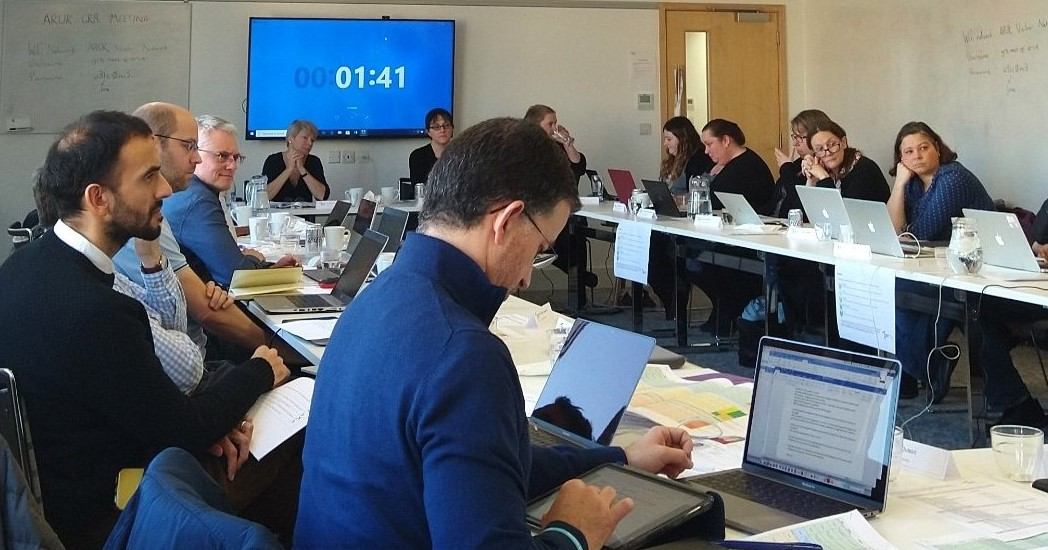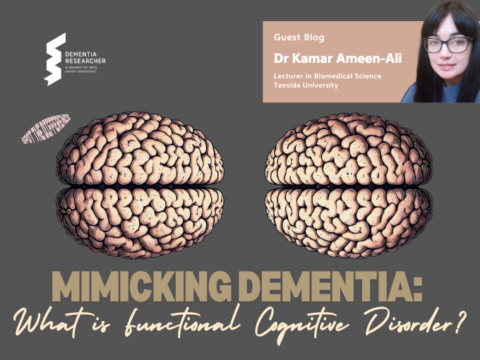
All scientists know that it is crucial to write successful grants, in order to fund their research. As an Early Career Researcher, it can be difficult to know what grant boards are looking for in an application. Alzheimer’s Research UK now allow Early Career Researchers to observe their Grant Review Board. This is a unique opportunity to gain insight into the process, which grants go through, in order to get funded. I was fortunate enough to be invited to sit in. Here’s what I learned…
The Format:
About 20 dementia research experts, who are specialists in a range of fields, come together and judge funding applications for various types of grants including pilot grants, project grants, equipment grants, junior fellowships and senior fellowships. By this stage, the applications have been reviewed and had rebuttals (an overview of the process can be found here: https://www.alzheimersresearchuk.org/for-researchers/how-we-deliver-research/the-grants-review-process/). At the Grant Review Board, two members present the applications, summarise them, report on the reviewers’ remarks, and give their opinions on whether or not a project should receive funding. All applications are rated from 1 to 5, with 1 being the best and 5 the worst, and half points are included. It’s fast-paced and focused! There are a lot of applications to get through and there is even a giant timer on the wall (just like Countdown!).
Here are the most useful things I learned:
- Follow the guidelines. This might sound obvious however, if the application is supposed to be a certain length, then make sure it is! Board members did not appreciate having to read applications that were a lot longer than specified and some found it disrespectful to the process.
- The grant must fit the remit of the funders. Also, make sure you are applying for the correct grant. For example, if it is a new idea then apply for a pilot project grant rather than a project grant, as these are for more established ideas.
- Power calculations, power calculations, power calculations! You need to show that your experiments are powered enough, that the n-numbers have not just been plucked out of mid-air and that the planned experiments will be statistically relevant.
- Controls must be included and justified. Just like we all learned at high school…
- Again, it sounds obvious, but if the application is littered with spelling and punctuation mistakes, it gives the impression of being rushed and that the applicants don’t really care.
- There should be clear aims, tied together with a strong narrative, plus a well-defined strategy for meeting these aims, and the project has to be realistic. This includes presenting a sensible timeline, being clear about what skills and techniques are established and what still needs to be learned, in addition to appropriate and accurate costings. Don’t be over-ambitious because the board know what is and isn’t achievable (and they want you to do well)!
- Have a back-up plan! Science doesn’t always work, which the Grant Review Board understand. They were more favourable towards grants with aims that weren’t wholly reliant on each other. They also appreciated applications with alternative models and techniques built into them.
- Pilot data is a big help! Applications with pilot data were well-received, as this provided proof of concept and inspired faith that there were likely to be interesting findings from the project. Even something as simple as using a Western blot to show that an antibody worked. The Grant Review Board also liked it if a pilot grant from Alzheimer’s Research UK had been used to generate the pilot data.
- If salaries are included, then the roles of these positions need to be defined. What will these people be doing? Will extra time for training need to be accommodated? Their roles need to be justified.
- Applications were looked upon favourably if they had accepted and addressed criticisms, as this demonstrated that the applicants were willing to develop their ideas.
- What happens after the project? The Grant Review Board wanted to know what all this hard work was going to lead towards and how it would be translatable. What were the next stages of the research and how was it going to help dementia research move towards a treatment or cure?
 As an Early Career Researcher, I was particularly interested in the fellowship applications. I noted down some extra tips about these applications:
As an Early Career Researcher, I was particularly interested in the fellowship applications. I noted down some extra tips about these applications:
- The Grant Review Board really wanted fellowship applications to succeed! I asked a few of the members why this was and each of them said that it was because they were very aware that this was someone’s career and it was usually a young researcher, whom they wanted to encourage. If the Grant Review Board were on the fence about an application, they were more likely to mark it positively, as the next stage is an interview and they wanted to give candidates a chance to explain any discrepancies in their applications.
- Projects, where individuals would receive well-rounded skill-training opportunities, were looked on positively… as long as these were built-in to the timeline and supported by the right experts.
- The Grant Review Board looked for productive candidates. These candidates didn’t need to have really high-impact papers; however, they did need to show that they had led research by publishing first or last author papers. Furthermore, the papers needed to be relatively recent and in a relevant field to their application.
- Additional evidence of good leadership is a bonus. A fellowship is an opportunity to lead a project and they are more likely to fund someone, who has shown that they are a leader, whether that be by organising conferences or carrying our public engagement events.
- A good letter of support can go a long way. Find someone who will champion you!
- Supervisors have to be named on the application and the Grant Review Board want to make sure that these are the right people for the proposed project. If there is an area of your project, which is new to you, then it is worthwhile finding an expert in that area who could support you.
- The Grant Review Board were keen to interview candidates who had proposed a project that was really novel or in an understudied area. Therefore, it is worthwhile spending time cultivating your idea.
If you want the opportunity to observe the Alzheimer’s Research UK Grant Review Board yourself, the application usually opens in April and December each year. I highly recommend anyone, who is pursuing a research career, to apply. Alzheimer’s Research UK are incredibly supportive of Early Career Researchers and the whole day was a great experience!
Author
Dr Fiona McLean is a Postdoctoral Researcher at the University of Dundee. funded by the Innovative Medicines Initiative (IMI), as part of the IM2PACT project. Fiona’s research focuses on the links between obesity, diabetes and neurodegenerative diseases. Outside of science, she enjoys practising yoga, playing the piano and playing badminton – she is also useful to have around if you find yourself surrounded by bears!

 Print This Post
Print This Post





